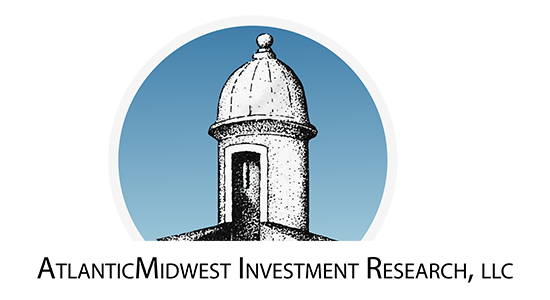Important Considerations When Building Your Retirement Plan in Your 40’s, 50’s and Beyond
As individuals enter their 40’s, 50’s and beyond, retirement planning takes on added significance. With retirement looming closer, it becomes increasingly important to reassess financial goals, adjust savings strategies, and ensure a secure financial future. Here are some important considerations for continuing to build your retirement plan in your 50s and beyond:
Evaluate Retirement Goals: As you approach retirement age, take the time to reevaluate your retirement goals. Consider factors such as:
- Desired lifestyle
- Healthcare needs
- Potential expenses in retirement.
- Potential reductions of expenses in retirement (often, people travel by car less and reduce spending on certain items such as clothes).
- Travel and other fun items.
Assess whether your current savings and investments align with your retirement vision and make adjustments as necessary.
Maximize Retirement Contributions: Take advantage of catch-up contributions available to individuals aged 50 and older. Both employer-sponsored retirement plans, such as 401(k)s and 403(b)s, and individual retirement accounts (IRAs) offer catch-up contribution provisions, allowing older individuals to contribute additional funds beyond the standard limits.
The contribution limit for employees who participate in 401(k), 403(b), and most 457 plans, as well as the federal government’s Thrift Savings Plan is increased to $23,000, up from $22,500.
The catch-up contribution limit for employees aged 50 and over who participate in 401(k), 403(b), and most 457 plans, as well as the federal government’s Thrift Savings Plan remains $7,500 for 2024. Therefore, participants in 401(k), 403(b), and most 457 plans, as well as the federal government’s Thrift Savings Plan who are 50 and older can contribute up to $30,500, starting in 2024. Source: IRS.
The limit on annual contributions to an IRA increased to $7,000, up from $6,500. The IRA catch‑up contribution limit for individuals aged 50 and over was amended under the SECURE 2.0 Act of 2022 (SECURE 2.0) to include an annual cost‑of‑living adjustment but remains $1,000 for 2024.
For self-employed, the maximum contribution gets even sweeter as contributions an employer can make to an their SEP-IRA may be up to:
- 25% of compensation or income after expenses, or,
- $69,000 for 2024.
Diversify Investments: Review your investment portfolio to ensure it is appropriately diversified based on your risk tolerance, time horizon, and retirement goals. Consider reallocating assets to reduce risk as you approach retirement age while still aiming for growth to outpace inflation and provide income during retirement. Remember, over-diversification can water down results. Picking the best companies (stocks) and debt securities (bonds) or the right selection of mutual funds or ETF’s can have a profound affect on your outcomes.
Healthcare Planning: Healthcare costs tend to increase with age, making healthcare planning a crucial aspect of retirement preparation. Explore options for healthcare coverage in retirement, such as Medicare and supplemental insurance policies, and estimate potential healthcare expenses to include in your retirement budget.
Long-Term Care Insurance: Long-term care costs can pose a significant financial burden in retirement. Consider purchasing long-term care insurance to help cover potential expenses associated with nursing home care, assisted living, or in-home care. Long-term care insurance can help protect retirement savings and provide peace of mind for you and your loved ones.
Debt Management: Strive to pay off high-interest debt before retirement to reduce financial stress and free up more funds for retirement savings. Prioritize debt repayment strategies and consider refinancing options to lower interest rates and accelerate debt payoff. Minimizing debt before retirement can improve cash flow and enhance financial security in retirement.
Explore Income Sources: Evaluate potential sources of retirement income beyond traditional savings and investments. Rental income, side jobs (often called side hacks and small business opportunities) and part-time employment opportunities to supplement retirement income.
Understand options for Social Security benefits and pension plans: Maximize benefits by delaying Social Security and claiming strategies if possible, as benefits increase for each year of delayed claiming beyond full retirement age.
Seek Professional Advice: Consider consulting with a financial advisor or retirement planner to create a comprehensive retirement plan tailored to your individual needs and circumstances. A financial professional can provide personalized guidance, recommend appropriate investment strategies, and help you navigate complex retirement planning decisions.
Call your advisor or link up with AmericasRetirementPlan.com from AtlanticMidwest Investment Research. Select Contact us for help.
[Special note: AmericasRetirementPlan.com and AtlanticMidwest Investment Research, LLC are owned by the same principal as LifeByDesign360.com / Archimedes Worldwide, LLC]
Review Estate Planning Documents: Update estate planning documents, such as wills, trusts, and powers of attorney, to reflect changes in your financial situation and ensure your wishes are accurately documented. Review beneficiary designations on retirement accounts and insurance policies to ensure they align with your current intentions.
Stay Flexible and Adapt: Life is unpredictable, and financial circumstances may change over time. Stay flexible and be prepared to adapt your retirement plan as needed in response to changes in the economy, personal circumstances, or financial goals. Regularly review and adjust your retirement plan to stay on track toward achieving your retirement objectives.
In summary, building and maintaining a robust retirement plan in your 50s and beyond requires careful consideration of various factors, including retirement goals, savings strategies, investment allocation, healthcare planning, debt management, and estate planning. By taking proactive steps and seeking professional guidance when needed, you can enhance financial security and enjoy a fulfilling retirement lifestyle.
